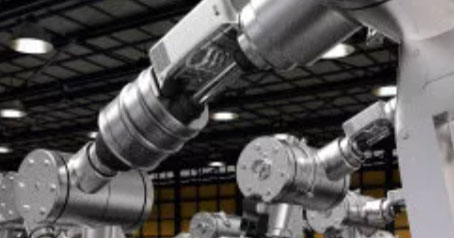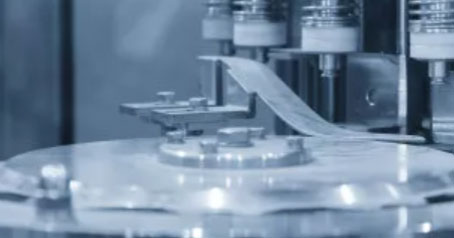The evolution of hydraulic piston pump technology has been instrumental in shaping the capabilities of various industries that rely on fluid power systems. From enhanced efficiency to smarter control options, advancements in this field continue to redefine what hydraulic piston pumps can achieve. In this blog, we'll explore some of the notable technological advancements that have propelled hydraulic piston pumps to new heights.
Variable Displacement Technology
One of the significant advancements in hydraulic piston pump technology is the development of variable displacement pumps. Traditional fixed displacement pumps operate at a constant flow rate, regardless of the system's demand. Variable displacement pumps, however, adjust their output based on the load requirements, leading to improved energy efficiency and reduced heat generation. This technology not only conserves energy but also extends the lifespan of the pump and other system components.
Electronic Control and Automation
The integration of electronic control systems with hydraulic piston pumps has revolutionized how fluid power systems are operated. Electronic controls allow for precise adjustment of flow rates and pressures, enabling smoother and more accurate operation. This level of control is particularly beneficial in applications that require complex movements and precise force application, such as robotics and industrial automation. Moreover, electronic feedback mechanisms enhance system diagnostics, making it easier to identify and address issues promptly.
Noise and Vibration Reduction
Hydraulic systems, including piston pumps, have historically been associated with noise and vibrations. However, advancements in design and engineering have led to quieter and smoother operation. Innovative features like active damping systems and improved pump housing designs help minimize noise and vibrations, allowing hydraulic piston pumps to be used in environments where noise levels are a concern, such as in residential areas or indoor facilities. The quest for more sustainable solutions has led to the integration of hydraulic systems with other technologies, resulting in hybrid systems. Hydraulic hybrid systems often combine the benefits of hydraulic energy storage with other energy sources, such as electric motors or internal combustion engines.
These systems can recover energy during braking or deceleration, store it hydraulically, and later release it to assist in acceleration. This approach enhances overall system efficiency and reduces fuel consumption in applications like hybrid vehicles and heavy machinery. The journey of hydraulic piston pump technology from its early beginnings to its current state is marked by continuous innovation and refinement. Advancements in variable displacement technology, electronic control systems, noise reduction, hybridization, and predictive maintenance have propelled hydraulic piston pumps to deliver higher efficiency, precision, and reliability. As industries continue to evolve, hydraulic piston pump technology will likely remain a dynamic field, shaping the future of fluid power systems across diverse applications.
 French
French
 Portuguese
Portuguese
 Russian
Russian
 German
German
 Spanish
Spanish
 Japanese
Japanese
 Korean
Korean
 Irish
Irish
 Greek
Greek
 Turkish
Turkish
 Italian
Italian
 Danish
Danish
 Romanian
Romanian
 Indonesian
Indonesian
 Czech
Czech
 Afrikaans
Afrikaans
 Swedish
Swedish
 Polish
Polish
 Basque
Basque
 Catalan
Catalan
 Esperanto
Esperanto
 Hindi
Hindi
 Lao
Lao
 Albanian
Albanian
 Amharic
Amharic
 Armenian
Armenian
 Azerbaijani
Azerbaijani
 Belarusian
Belarusian
 Bengali
Bengali
 Bosnian
Bosnian
 Bulgarian
Bulgarian
 Cebuano
Cebuano
 Chichewa
Chichewa
 Corsican
Corsican
 Croatian
Croatian
 Dutch
Dutch
 Estonian
Estonian
 Filipino
Filipino
 Finnish
Finnish
 Frisian
Frisian
 Galician
Galician
 Georgian
Georgian
 Gujarati
Gujarati
 Haitian
Haitian
 Hausa
Hausa
 Hawaiian
Hawaiian
 Hebrew
Hebrew
 Hmong
Hmong
 Hungarian
Hungarian
 Icelandic
Icelandic
 Igbo
Igbo
 Javanese
Javanese
 Kannada
Kannada
 Kazakh
Kazakh
 Khmer
Khmer
 Kurdish
Kurdish
 Kyrgyz
Kyrgyz
 Latin
Latin
 Latvian
Latvian
 Lithuanian
Lithuanian
 Luxembourg
Luxembourg
 Macedoniar
Macedoniar
 Malagasy
Malagasy
 Malay
Malay
 Malayalam
Malayalam
 Maltese
Maltese
 Maori
Maori
 Marathi
Marathi
 Mongolian
Mongolian
 Burmese
Burmese
 Nepali
Nepali
 Norwegian
Norwegian
 Pashto
Pashto
 Persian
Persian
 Punjabi
Punjabi
 Serbian
Serbian
 Sesotho
Sesotho
 Sinhala
Sinhala
 Slovak
Slovak
 Slovenian
Slovenian
 Somali
Somali
 Samoan
Samoan
 Scots Gaelic
Scots Gaelic
 Shona
Shona
 Sindhi
Sindhi
 Sundanese
Sundanese
 Swahili
Swahili
 Tajik
Tajik
 Tamil
Tamil
 Telugu
Telugu
 Thai
Thai
 Ukrainian
Ukrainian
 Urdu
Urdu
 Uzbek
Uzbek
 Vietnamese
Vietnamese
 Welsh
Welsh
 Xhosa
Xhosa
 Yiddish
Yiddish
 Yoruba
Yoruba
 Zulu
Zulu







